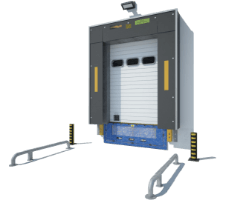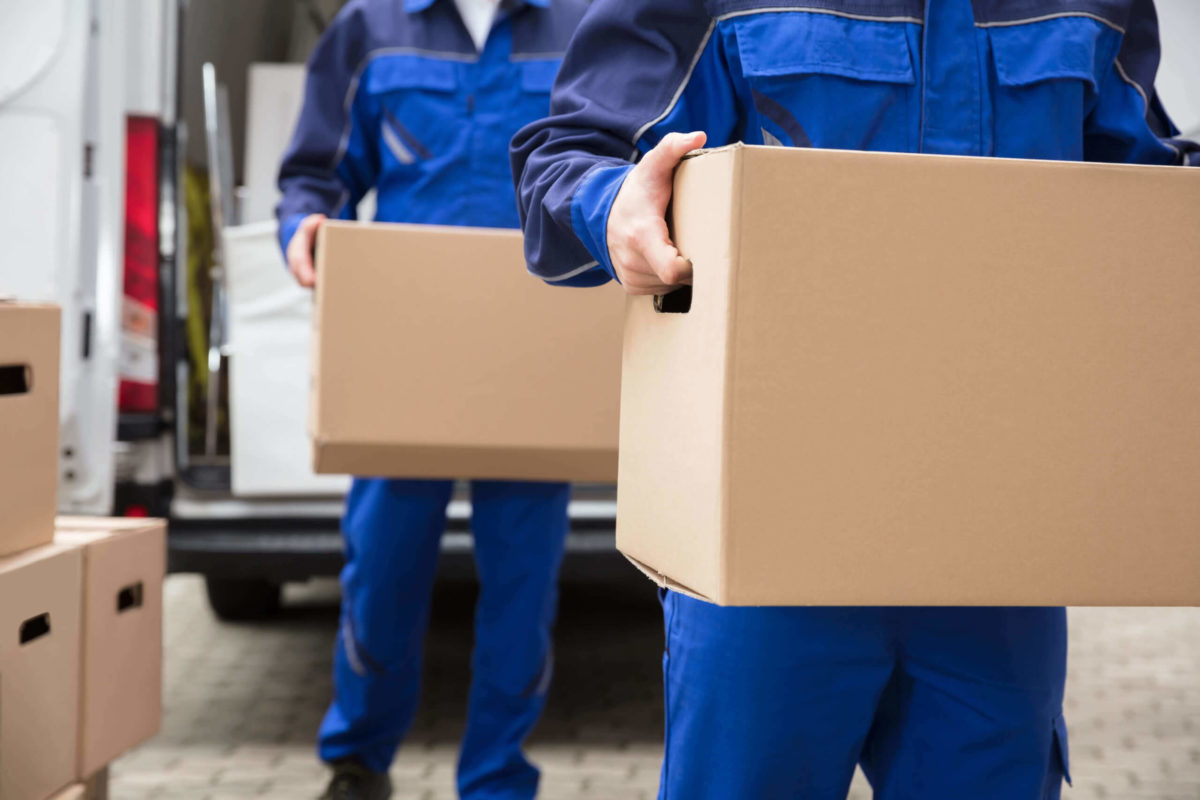Before the move, it’s crucial to acquaint yourself with your new location, set a solid relocation plan and budget, and choose a reputable moving company to ease the transition. Keep the vital documents at hand and remember to update the address across all necessary platforms to ensure a seamless shift to your new home.
What Do I Need to Move Out? Preparing for a Cross-Country Relocation
Leaping to relocate across the country can be both exhilarating and daunting. As the anticipation builds, you might find yourself pondering, “What do I need to move out?” Preparing for a cross-country relocation requires meticulous planning, from packing essentials to logistical considerations. Let’s delve into the key steps and insights that will ensure your journey from the old home to the new one is as smooth as possible.


How to Be Prepared for Relocation?
Whether you’re relocating to a new city or an entirely different state, it is a significant life event that demands both mental and physical preparedness. Mentally, every transition can bring forth a mix of emotions, from the excitement of a fresh start to the anxiety about moving out.
Physically, the logistics and effort required can be taxing, from sorting belongings to the actual relocation itself. Properly preparing and organizing your move ensures not only a smooth and easy transition but also aids in quickly adapting and thriving in the new environment.
Get to Know Your New Location Before Moving Cross-Country
Before leaping to relocate cross-country, it’s crucial to familiarize yourself with your new location. Delve deep into researching your destination to understand a different climate, the cost of living, the safety of the neighborhood, and any unique local norms that may differ from what you’re accustomed to.
Furthermore, whether you’re looking to buy or rent, research the housing availability in your desired area. By understanding the property market dynamics, you can make informed decisions, ensuring you secure a home that meets your needs and budget. This preparatory phase is invaluable in facilitating a smoother transition to your future surroundings, and platforms such as AreaVibes or Nextdoor can be of great assistance in this phase.


What Do I Need to Move Out? Make a Solid Relocation Plan
The cornerstone of a successful transition is having a solid relocation plan. Start by assessing your needs, both immediate and long-term, and sort through your belongings to decide what to keep, sell, or donate to charity. Establish a timeline that encompasses all stages of your relocation, from packing to settling into your new home.
Also, don’t forget to budget for all foreseeable expenses, such as moving services, housing costs, and initial setup needs. Moreover, regularly revisiting and updating your plan ensures you stay on track, alleviating the relocation stress of unforeseen challenges and streamlining the entire relocation process.
Choosing the Right Long-Distance Moving Company
When embarking on this significant journey, choosing the right moving company and booking moving and packing services becomes paramount. But how do you pick and hire a reliable mover? For starters, you want to ensure the company is well-versed in the unique challenges and intricacies of shipping your belongings over vast distances.
It’s pivotal to research potential firms thoroughly, read past customer reviews, and perhaps even seek recommendations from acquaintances who’ve recently relocated. Ensure that the company is licensed and insured, and always request to see a clear track record of successful deliveries and satisfied customers. Dive deep into understanding their insurance policies and always request a clear and detailed estimate of costs, ensuring there are no hidden fees.
Make Arrangements for Shipping Your Vehicle as Well
When opting for an auto transport service, it’s crucial to understand the types of trailers available. Open trailers are a more affordable and commonly used option that can transport multiple vehicles at once. However, their openness will leave vehicles exposed to the elements. On the other hand, enclosed trailers offer more protection, making them ideal for luxury or classic cars, but they come at high costs.
Moreover, make sure to always research their delivery solutions. Door-to-door delivery offers the convenience of having your vehicle picked up from your old location and delivered straight to your new residence, whereas terminal-to-terminal requires you to drop off and pick up your vehicle at designated locations.
When entrusting your vehicle to professionals, it’s also vital to be informed of their insurance policies to ensure your vehicle’s safety during transit and in case of unplanned situations. Whatever choice you make, it should align with your relocation strategy.


Downsize for Relocation and Make Your Load Lighter
Embarking on this adventure offers a golden opportunity to downsize for a move and lighten your load in the process. The relocation benefits of doing so are manifold. Not only does it often lead to reduced relocation costs due to fewer items to transport, but it also provides a chance to declutter, giving you a fresh start in your new home.
Furthermore, reducing unnecessary possessions can make the unpacking process more straightforward and efficient. But how do you decide what stays and what goes? Begin by categorizing items based on frequency of use, emotional value, and practicality in your new location. Consider the space and storage capacities of your future abode. If certain belongings don’t align with your envisioned lifestyle or simply won’t fit, it might be time to let them go.
Check the video below for some tips on how to declutter for your relocation.
Gather Packing Essentials for Safeguarding Your Belongings
One of the pivotal aspects of a successful move lies in efficient packing. Having the right supplies on hand not only safeguards your belongings but also streamlines the entire process, making it more efficient and less stressful.
Ensuring your possessions arrive at their new destination in pristine condition begins with equipping yourself with the right tools. Here’s the list of essential packing materials you should have on your hand:
- Sturdy boxes – get crates in a variety of sizes to accommodate different items.
- Duct tape – heavy-duty tape to securely seal your boxes.
- Bubble wrap – for cushioning fragile items and preventing breakage.
- Clean paper – helpful for wrapping items and filling gaps in boxes to avoid movement.
- Stretch wrap – useful for bundling items together and protecting furniture from scratches.
- Labels and markers – for labeling boxes for easy identification.
- Box cutters – for opening boxes without causing damage.
- Foam peanuts – used to fill void spaces in boxes, offering added protection.
- Furniture pads and blankets – for added protection of large items.
- Specialty boxes – like wardrobe boxes, dish barrel boxes, or mattress bags for specific items.


Address Financial Matters and Mastering Your Finances
Addressing financial matters is a cornerstone of any major life event, and a cross-country relocation is no exception. While the immediate expenses of the relocation are evident, mastering your finances goes beyond just the basics. It involves creating a detailed relocation budget that accounts for more than just the evident expenses.
There are also hidden costs you should be prepared for, such as unexpected repairs at the new place, higher utility deposits, costs related to breaking a lease, temporary storage fees, appliance installations, and the need to purchase new items. By mastering this aspect, you’re laying the groundwork for financial stability and growth in your next chapter.
Moving
Our mission is to bring high quality, long distance moving services to every customer.
Packing
Our expert moving teams are trained to ensure the safety of your personal belongings.

Storage
Cross Country Moving Company is the most trusted name in auto industry in the country.
Prepare Personal Documentation and Update Your Address
Having important documents like birth certificates, passports, medical records, and financial statements at hand is essential. Not only does it make relocating smoother, but it also helps in any verification steps you might face in your new place.
It’s a good practice to keep these important papers with you during the transition. We recommend using a dedicated relocation binder for organization, ensuring everything stays in one spot. Don’t underestimate the value of digital backups, either. Scanning these vital papers provides an extra security layer.
Lastly, let’s not forget the administrative side of moving. Changing your address is a must. To maintain seamless communication and services, be sure to notify relevant institutions, from banks and insurance companies to governmental agencies.


With a Cross Country Moving Company by Your Side, Navigate Your Next Chapter With Confidence
Every long-distance relocation is a perfect mix of adventure and challenge. At Cross Country Moving Company, we understand that relocating marks the beginning of a new chapter in your life. With our expert long-distance moving services, this journey becomes more manageable, ensuring that your transition is as seamless as it is exciting.
From the initial packing phase to the moment your belongings reach your future home, our dedicated team is here to guide and support you every step of this journey. Entrust your relocation planning to professionals who care. Contact us today and navigate your upcoming chapter with unparalleled confidence.
FAQ
How Far in Advance Should I Start Planning My Cross-Country Move?
Ideally, you should start planning your relocation 3-6 months in advance. This gives you enough time to sort out housing, schedule cross-country movers on time, declutter, pack, and handle other logistics.
Is It Cheaper to Move With a Relocation Company or to Do It Myself?
Costs can vary based on the volume of items you have, distance, and specific needs. Hiring a relocation company might be more expensive, but it can be less stressful and more efficient. DIY relocations can be cheaper, but they often require more time, effort, and unforeseen expenses (like equipment rentals or fuel). Always get quotes and compare costs before deciding.
How Can I Ensure My Belongings Are Safe During Such a Long Relocation?
Invest in quality packing materials and ensure items are packed securely. If booking long-distance movers, check their insurance policies and consider purchasing additional coverage if necessary. Keep an inventory of your items and take photographs of valuable possessions.
What Is the Best Time of Year to Plan a Cross-Country Relocation?
The late spring to early fall is a popular moving time due to favorable weather. However, companies might be busier, and rates can be higher. Winter relocations can be cheaper but come with challenges like snow and cold temperatures.
What Should I Look For in Cross-Country Moving Companies?
When selecting a cross-country moving service, it’s crucial to prioritize companies with appropriate licensing and credentials, such as a USDOT number for interstate relocations. Experience indicates a company’s adeptness in managing challenges that can arise during long-distance relocations.
Look for transparent pricing, ensuring you get a clear breakdown of costs, and read reviews to gauge their reputation. Consider the array of cross-country moving services they offer, from packing to storage solutions, and assess their communication quality and customer service responsiveness. Before committing, carefully review the contract to avoid any hidden fees or surprises.
Do I Need to Be Present During the Entire Moving Process?
While you don’t need to be present the entire time, you should be there during key moments. This includes when the movers arrive to pack and load, as well as when they arrive at your new location. If you can’t be there, consider designating a trusted person to supervise.
How Do I Handle Utilities When Moving Cross-Country?
Contact your current utility providers to terminate or transfer services. Schedule shut-offs for a day or two after your relocation and arrange for utilities to be set up at the new location on your move-in day or earlier.
What Are the Regulations for Transporting Pets Across State Lines?
Regulations vary by state. Typically, you may need a recent health certificate from a vet and proof of vaccinations. Some states have quarantine requirements for certain animals, meaning you’ll have to research specific requirements for your destination state.
How Can I Keep Track of My Items During Relocation?
Create an inventory list of all items. Number your crates and maintain a list of what each box contains. If you’re hiring a moving company, they often provide tracking services. Taking photos of items before packing can also be helpful for reference.
What Do I Need to Move Out of My Parent's House?
Moving out of your parents’ house requires financial and emotional preparedness. Start by assessing your financial situation, considering both income and expenses. Decide whether you’ll be renting or buying, and prepare for the costs associated.
Gather essentials ranging from kitchenware to important documents like your ID and birth certificate. Lastly, ensure you’re mentally ready for the independence and responsibilities of living on your own.
What Do I Need to Pay for When I Move Out?
Major costs include rent (often requiring a security deposit and first few monthly rents upfront), utilities (like electricity, water, and internet), and relocation costs if you’re booking professional assistance or renting a truck.
Furnishing and stocking your new place also adds to the expenses, covering everything from bills and furniture to groceries. Lastly, consider additional costs like renters’ insurance and miscellaneous fees such as setup charges for utilities.







